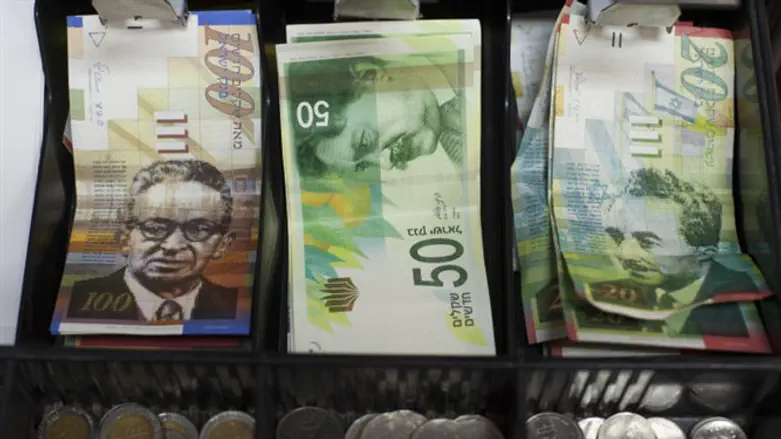
A new Israeli law restricting the use of cash for either wages or payments for transactions has taken effect.
Officially titled the Law to Reduce the Use of Cash, the measure was passed in the Knesset in March, but only went into effect on Tuesday with the start of the new year.
The law was passed, following multiple delays, in response to the findings of a July 2014 report by the Committee to Examine Reducing the Use of Cash in Israel’s Economy, headed by Harel Locker.
The Locker report, which was adopted by the Finance Ministry, urged the government to ban the use of cash for purchases, payment of wages, or other transactions over a certain limit, in the hope that the restrictions would reduce the amount of unreported transactions which evade tax authorities.
“Based on Israel Tax Authority estimates, about one-fifth of economic activity in Israel is unreported - that is, the shadow economy!” the 2014 report claims.
“The implication of the shadow economy in Israel is loss of tax revenues of about NIS 40–50 billion [$11.5 - $14.4 billion] per year, an amount equal to nearly the entire shekel budget of Israel’s Ministry of Defense, Ministry of Health, or Ministry of Education.”
The Finance Ministry has planned for a ban on transactions involving a business or employer on any transactions or payment of wages to employees in cash over the amount of 5,000 shekels ($1,333), or up to 25,000 shekels ($6,666) for transactions between two private individuals.
In accordance with an agreement reached with Knesset Finance Committee Chairman Moshe Gafni (United Torah Judaism), however, the ban will be instituted in stages.
Under the law passed last March, the caps on the usage of cash for transactions or payment of wages are 11,000 shekels ($2,934) for businesses or employers, and up to 50,000 shekels ($13,334) for transactions between private citizens.
For transactions or payments over 11,000 shekels ($2,934) for businesses or employers, cash may only be used for up to 10% of the total price, or up to 11,000 shekels, whichever is lower. For example, for a 50,000 shekel exchange, up to 5,000 shekels may be given in cash, or 10% of the total value.
Other restrictions include a 20,000 shekel ($5,333) limit to purchases by private individuals from businesses. Consumers will be able to pay in cash for purchases up to 20,000 shekels, but for any transactions beyond that price, cash may only be used for up to 10% of the total cost, and no more than 11,000 shekels ($2,934) total, whichever is lower.
Harel Locker, who compiled the report, said the law was part of a larger move towards “a cashless society”.
“In a digital age, cash will have no significance. It is appropriate that in this issue as well, the State of Israel lead the process and enter the new age in a prepared and innovative manner.”
